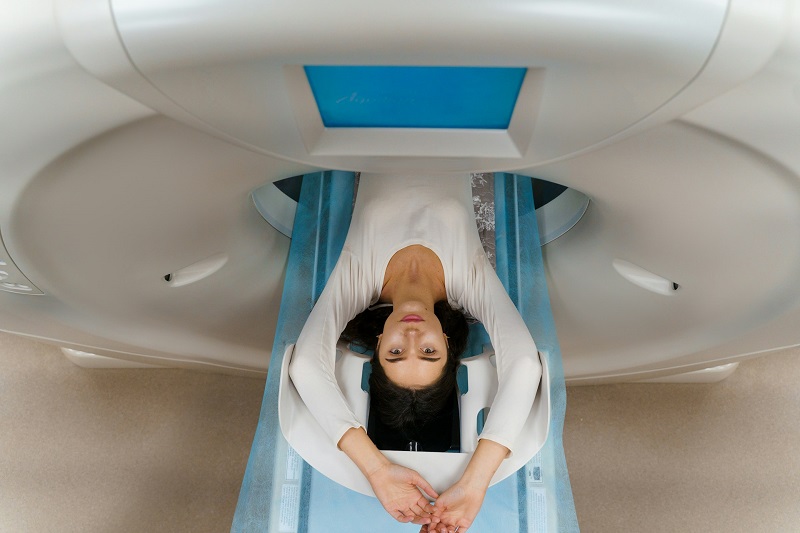More targeted and less aggressive radiotherapy for low-risk breast cancer could spare thousands of women the harsh side effects of the treatment, a...
Vous n'êtes pas connecté
Rubriques :
 - WN.COM - Health - 15/Jul 07:02
- WN.COM - Health - 15/Jul 07:02
Targeted breast cancer treatment
More targeted and less aggressive radiotherapy for low-risk breast cancer could spare thousands of women the harsh side effects of the treatment, a trial has found. The Import Low trial, led by The Institute of Cancer Research, London, and the University of Cambridge, found limiting radiation to the tumour area, rather than treating the whole breast, was just as effective. The study included 2,018 women across 30 radiotherapy centres in the UK, who were monitored for 10 years after treatment. The technique, which has since been...
Articles similaires
New obesity drug may slow breast cancer growth
A new study has found that a drug used for treating obesity and type 2 diabetes may also help slow the growth of breast cancer caused by obesity. The...
New obesity drug may slow breast cancer growth
A new study has found that a drug used for treating obesity and type 2 diabetes may also help slow the growth of breast cancer caused by obesity. The...
Precise tumour targeting
At the University Hospital of the West Indies (UHWI), someone is diagnosed with breast cancer nearly every day. There are almost daily surgeries as...
Big advancements in breast cancer detection and treatment
Breast cancer is the most common cancer for women in New Hampshire and across America. ......
What to expect after radiation therapy
Radiation therapy is a common treatment for cancer. It uses high-energy rays to kill cancer cells or stop them from growing. While it can be very...
What to expect after radiation therapy
Radiation therapy is a common treatment for cancer. It uses high-energy rays to kill cancer cells or stop them from growing. While it can be very...
Common dietary fat boosts growth of aggressive breast cancer
A new preclinical study from Weill Cornell Medicine reveals that linoleic acid, a type of omega-6 fatty acid commonly found in seed oils and animal...
Common dietary fat boosts growth of aggressive breast cancer
A new preclinical study from Weill Cornell Medicine reveals that linoleic acid, a type of omega-6 fatty acid commonly found in seed oils and animal...
Les derniers communiqués
-
Argonne National Laboratory Celebrates Aurora Exascale Computer
Intel - 19/07/2025
-
Meta to invest hundreds of billions in superintelligence efforts
Meta - 16/07/2025
-
NASA discovers 'super Earth' planet emitting mysterious signal
National Aeronautics and Space Administration - 16/07/2025
-
Amazon Prime Day 2025 Delivers Record Sales and Savings in Expanded Four-Day Shopping Event
AMAZON - 12/07/2025
-
DHS Reveals Criminal Histories of Illegal Aliens Detained at Prairieland Detention Center at Time of July 4 Attack
The Department of homeland security - 11/07/2025
-
Henson Group and myCloudDoor Merge to Form ALIANDO, a Leading, Global Microsoft Partner
Henson Group - 10/07/2025
-
Their ability to enter and operate in the United States emphasized the danger of letting violent offenders exploit our border—and reinforces why the Trump Administration refuses to let its guard down. HSI Omaha led the operation with support from federal and international law enforcement partners. ICE currently holds both individuals in custody. The agency has initiated removal proceedings and will continue coordinating with El Salvadoran authorities to send them back to face justice.
The Department of homeland security - 10/07/2025
-
Their ability to enter and operate in the United States emphasized the danger of letting violent offenders exploit our border—and reinforces why the Trump Administration refuses to let its guard down. HSI Omaha led the operation with support from federal and international law enforcement partners. ICE currently holds both individuals in custody. The agency has initiated removal proceedings and will continue coordinating with El Salvadoran authorities to send them back to face justice.
The Department of homeland security - 10/07/2025
-
ICE Takes Down High-ranking MS-13 Gang Leaders Wanted for Murder
The Department of homeland security - 10/07/2025
-
Buy with Prime Expands with New Brand Dr. Berg Nutritionals
AMAZON - 09/07/2025


